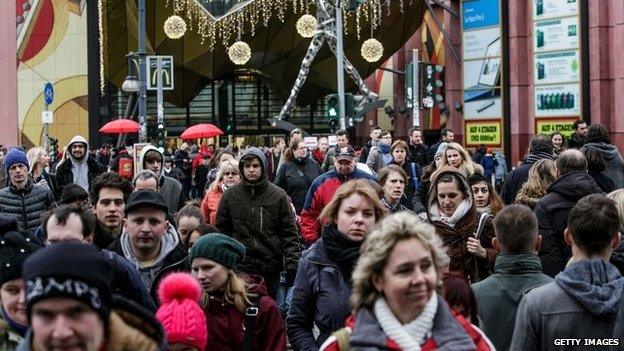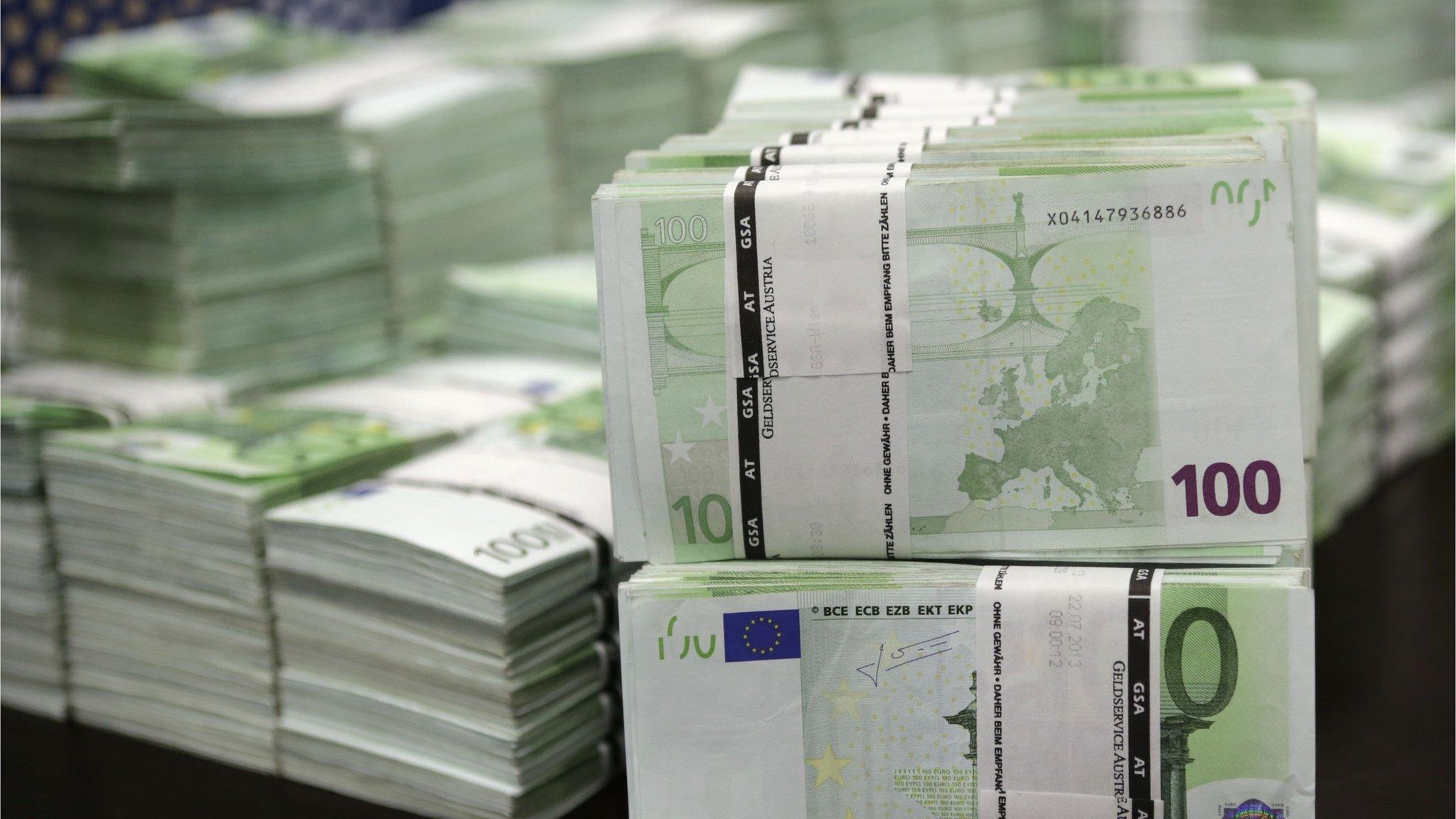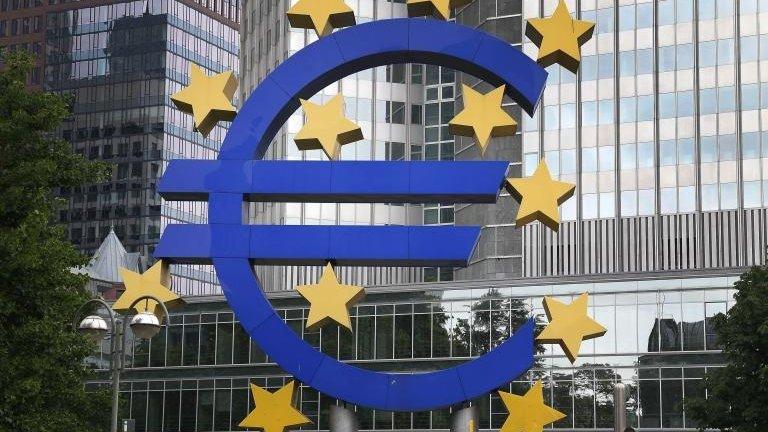German inflation falls to five-year low
- Published

Lower prices are good news for consumers but some are holding back to see if prices fall further
Inflation in Germany fell to its lowest level in more than five years in December, official figures have shown.
Germany's federal statistics office Destatis, external, said the annual rate of inflation fell to 0.2% in December from 0.6% a month earlier.
That was its lowest level since October 2009.
It comes two days before eurozone inflation figures for December, which some analysts believe will show the currency bloc falling into deflation.
Inflation in the 18-nation currency bloc in November stood at 0.3% according to the European Union's statistics agency, Eurostat.
It has been below the Bank's target of 2%, or just below, since the start of 2013.
A number of other eurozone countries, including Spain and Italy, have already fallen into deflation.
Using the European Central Bank's (ECB) preferred statistical calculations - the Harmonised Index of Consumer Prices (HICP) - German inflation was even lower at 0.1% in December.
The latest figures will increase pressure on the ECB to begin buying government debt.
After the ECB's December meeting left interest rates unchanged at 0.05%, the bank's president, Mario Draghi, said it had "stepped up" its preparations to act if needed, and help prop up inflation in the eurozone.
Oil
While low inflation leads to lower prices and can be good news for consumers, it can also lead to falling economic activity, job losses and recession.
Consumers and businesses tend to postpone making purchases or investments in the belief that prices may fall further.
This can lead prices even lower to the point where businesses are forced to lay off staff or even close altogether.
In the summer the ECB cut interest rates to a new all-time low and began an asset purchase programme to inject cash into the economy to help combat deflation.
But big falls in the price of oil, which has fallen more than 50% in the past six months, has had a greater impact on prices, continuing to push them lower.
Jennifer McKeown at Capital Economics said that the fall in German inflation was largely due to lower oil prices, and that the broader eurozone figure was likely to be negative for the first time since October 2009.
She added: "Such a development would surely make the pressure for the ECB to implement quantitative easing at its January meeting irresistible."
But concerns remain over how the ECB will structure its bond buying programme and whether Greek bonds will be included - given the uncertainty over which political party will win the snap election called for three days after the next ECB meeting.
The far-left Syriza party, which has vowed to reverse the austerity measures that were a condition for Greek bailout packages totalling €240bn (£187bn), holds a narrow lead in opinion polls.
- Published28 November 2014

- Published4 December 2014
